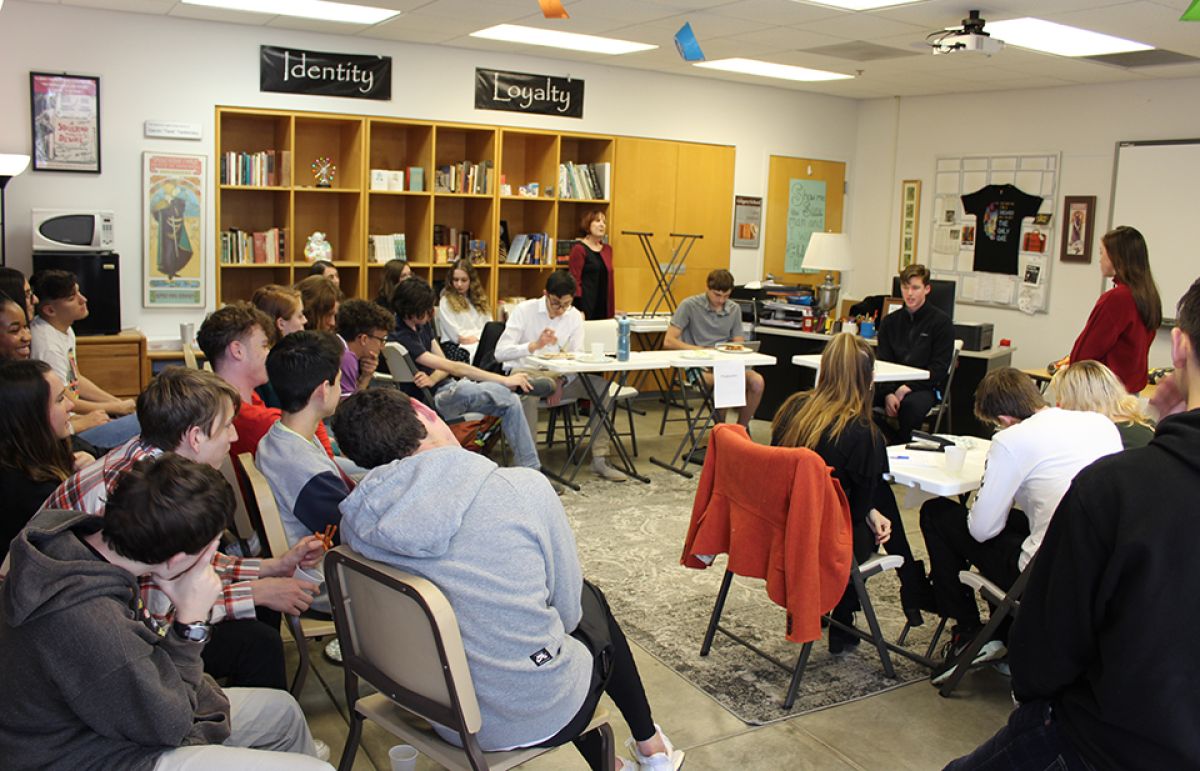
Medea on Trial: Project-Based Learning
How can a Greek revenge tragedy written in 5th century B.C. capture the imagination of today’s psychologically sophisticated young people?
After studying Euripides’ shocking play, Medea, Ms. Lori Barnett, who in addition to teaching eleventh grade English, teaches both Psychology and Literature and Advanced Psychology, suggested a project-based learning assessment to her classes: What if we were to put Medea on trial in contemporary times?
Would the defense be able to justify her cruel murder if the defense pleaded that she was insane? Could they prove that she had Dissociative Identity Disorder, which forced her alternative personality to perform such acts of cruelty? Could the prosecution prove, without a reasonable doubt, that instead, she should be convicted on the basis of filicide caused by her desire for spousal revenge?
On February 11th, the two classes and twelve impartial jurors put these questions to the test in a trial that included a judge, jury, and a full prosecution and defense team from the mixed level psychology classes.
Katie Kanter ‘20 remarked, “The Medea trial was a perfect culmination for my intellectual curiosity. The intersection of the play’s poignant psychological parallels as well as discussions of gender roles made for a very enjoyable murder case. Being able to apply my knowledge of psychology from Ms. Barnett’s two classes and my familiarity with criminal law from Mock Trial was extremely rewarding.”
All students enjoyed the process immensely, and put in a significant amount of research to both echo the play and modernize it accordingly. “While project based learning, cannot be the only form of assessment that we use to gauge our students’ understanding of texts,” Ms. Barnett explained. “It has proven to be the most enjoyable for students, because they take on a role, they target an audience, they have a specific format, and a real topic that often lingers in their educative imagination, long after the project has been completed.”

"I am blessed to be teaching in an environment that honors both contemporary and classical content and pedagogy. Students benefit from the diversity of approaches, and it is clear that they apply what they have learned in all their classes. Moreover, it is glorious to witness the ways in which they excel in the subjects and activities they love, and share with them those triumphs in which they have interest and passion."
Lori Barnett graduated from the Queens College City University of New York. She joined The Gregory School faculty in 2013.